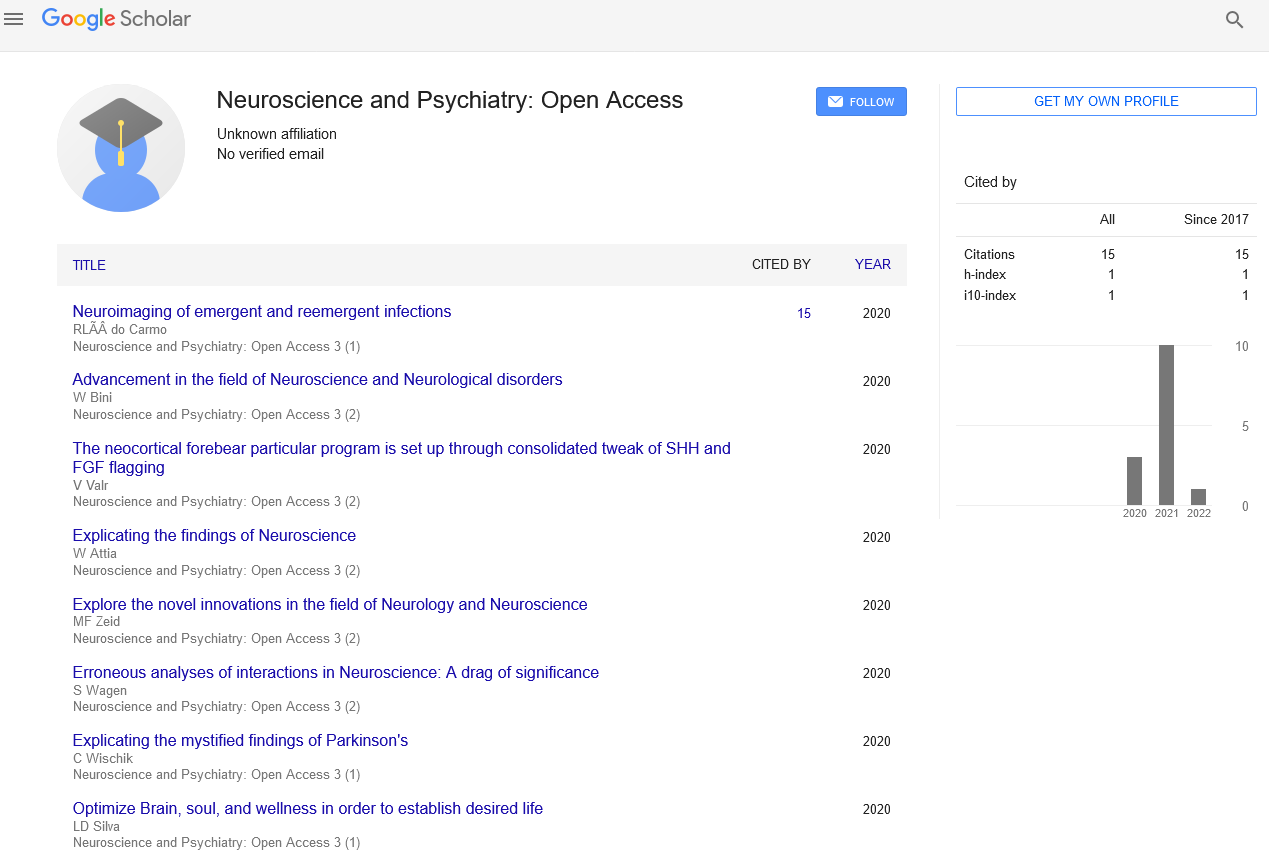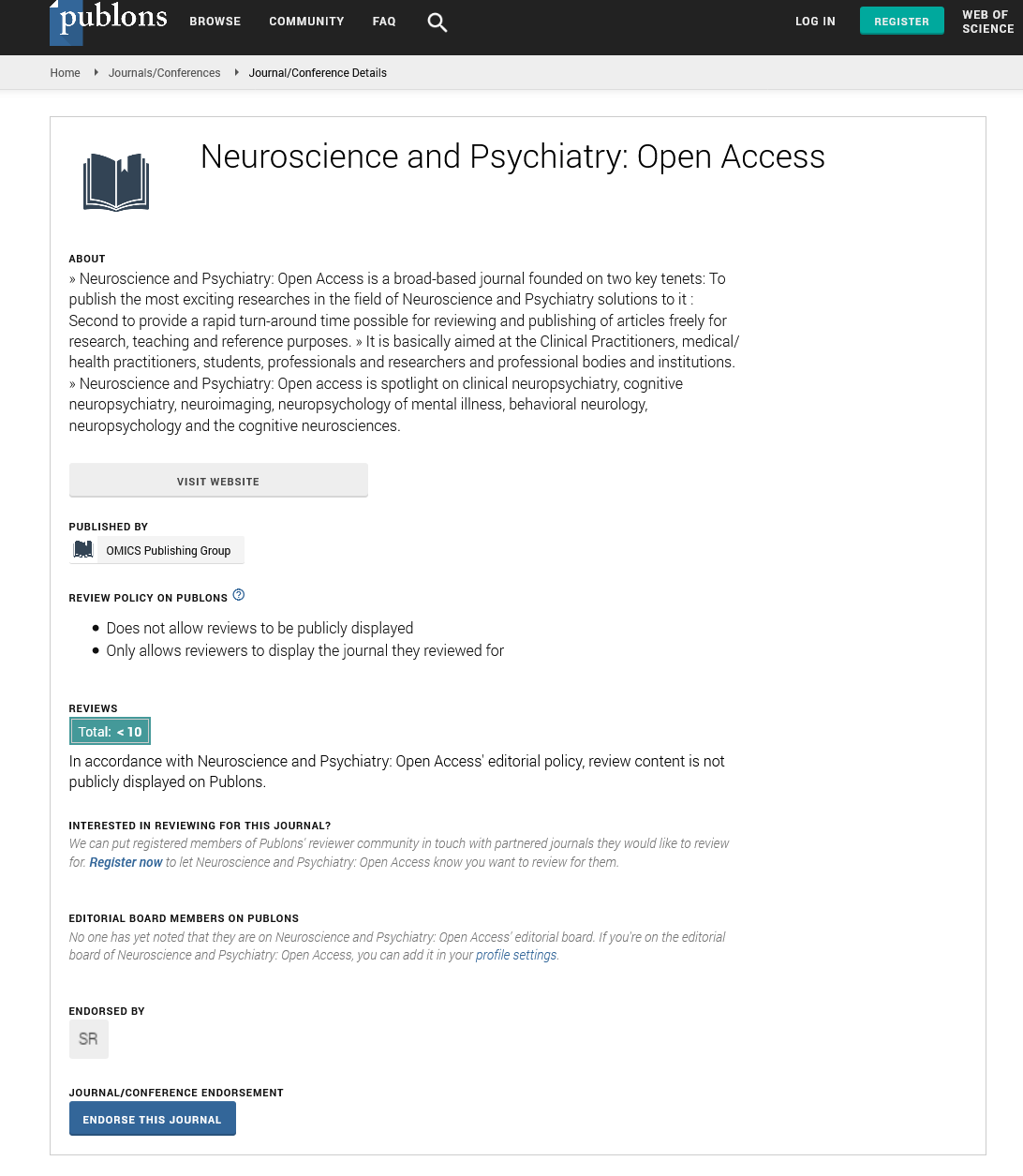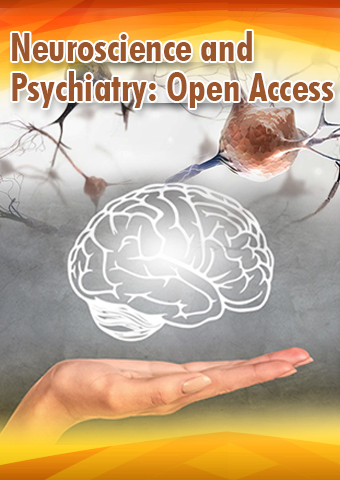Perspective - Neuroscience and Psychiatry: Open Access (2024) Volume 7, Issue 1
Unraveling the Genetic Tapestry: A Journey into the Fascinating World of Genetics
- Corresponding Author:
- Brian Kraus
Department of Psychiatry, University of New Mexico, Albuquerque, USA
E-mail: btkra876@u.northwestern.edu
Received: 03-01-2024, Manuscript No. NPOA-23-119209; Editor assigned: 06-01-2024, PreQC No. NPOA-23-119209 (PQ); Reviewed: 20-01-2024, QC No. NPOA-23-119209; Revised: 31-01-2024, Manuscript No. NPOA-23-119209 (R); Published: 08-02-2024, DOI: 10.47532/npoa.2024.7(1).170-171
Introduction
Genetics, the scientific study of heredity and variation, is a field that has witnessed groundbreaking discoveries and transformative advancements in recent years. This article aims to delve into the fascinating world of genetics, exploring its fundamental concepts, historical milestones, and the profound implications it has for understanding life itself.
Genetics is the study of genes, the units of heredity that contain the instructions for building and maintaining an organism. It examines how these genes are passed from one generation to the next and how they influence an individual’s traits, including physical characteristics, susceptibility to diseases, and even aspects of behavior.
Description
The role of genetics in health and medicine
Personalized medicine: One of the most promising and transformative applications of genetics in healthcare is personalized medicine. Personalized medicine tailors medical treatments to an individual’s unique genetic makeup. This approach allows healthcare providers to make more informed decisions about them key concepts in genetics.
Genomic variation: Genomic variation refers to the differences in DNA sequences among individuals, populations, and species. These variations can be small, such as Single Nucleotide Polymorphisms (SNPs), or larger, such as structural variations. Genomic variations are at the core of genetic diversity and underlie the genetic basis of many traits and diseases.
Gene expression: Gene expression is the process by which genetic information is used to synthesize proteins. Not all genes are actively expressed in every cell all the time; instead, gene expression is highly regulated and can be influenced by various factors, including environmental conditions, developmental stages, and cell type.
Understanding gene expression is crucial for unraveling the molecular mechanisms underlying many diseases and conditions, as well as for developing therapies that target specific genes.
Genetic mutations: Genetic mutations are changes in the DNA sequence that can result from various factors, such as errors during DNA replication, exposure to radiation, or chemicals. Mutations can be harmful, beneficial, or have no apparent effect on an organism.
Harmful mutations can lead to genetic disorders, while beneficial mutations can contribute to evolutionary adaptations. Genetic mutations are an essential aspect of genetic research and are critical for understanding the genetic basis of diseases and the evolution of species.
Genetic disorders: Genetic disorders are conditions caused by mutations in an individual’s DNA. These disorders can be inherited from one or both parents or can occur spontaneously due to new mutations. Genetic disorders can affect various aspects of an individual’s health and development, ranging from physical traits to susceptibility to diseases.
Examples of genetic disorders include cystic fibrosis, sickle cell anemia, huntington’s disease, and down syndrome. Genetic research aims to understand the underlying causes of these disorders and develop treatments or interventions. Most effective and safest treatments for patients.
For example, by analyzing an individual’s genetic profile, doctors can determine which medications are likely to be most effective and which might cause adverse reactions. This can significantly improve treatment outcomes and reduce the risk of side effects.
Genetic testing
Genetic testing is the process of analyzing an individual’s DNA to identify specific genetic variations or mutations. This can provide valuable information about a person’s risk for various genetic disorders, such as hereditary cancers or inherited cardiac conditions.
Genetic testing is used for various purposes, including diagnostic testing to confirm or rule out a suspected genetic condition, carrier testing to assess the risk of passing a genetic disorder to offspring, and predictive testing to determine an individual’s risk for developing a condition later in life.
Disease risk assessment
Genetics plays a crucial role in assessing an individual’s risk for developing specific diseases. For example, certain genetic variations are associated with an increased risk of developing conditions like breast cancer, Alzheimer’s disease, and diabetes. Understanding these genetic risk factors allows individuals to make informed decisions about their health and take preventive measures when necessary.
Gene therapy
Gene therapy is an emerging field that aims to treat or prevent genetic disorders by introducing, removing, or modifying genes within an individual’s cells. This groundbreaking approach holds promise for treating conditions that have a clear genetic basis, such as certain types of inherited blindness and Severe Combined Immunodeficiency (SCID).
Challenges and ethical considerations
While the field of genetics offers enormous potential, it also presents several challenges and ethical considerations.
Privacy and data security: Genetic information is highly personal and sensitive. Maintaining the privacy and security of genetic data is paramount to protect individuals from potential discrimination, stigmatization, or misuse of their genetic information.
Informed consent: Genetic testing and research require informed consent, as individuals should have the autonomy to decide whether they want to participate and to understand the potential risks and benefits. Ensuring that individuals are fully informed and provide their consent voluntarily is crucial in genetic research and healthcare.
Genetic discrimination: Genetic discrimination, also known as genetic or genomic discrimination, occurs when individuals are treated unfairly based on their genetic information. This can include discrimination in employment, health insurance, or other areas of life. Legislation, such as the Genetic Information Non-discrimination Act (GINA) in the United States, has been enacted to protect individuals from genetic discrimination.
Conclusion
Genetics is a dynamic and evolving field that has deepened our understanding of life at its most fundamental level. It has allowed us to explore the intricate code of DNA, unravel the mysteries of inheritance, and gain insights into the genetic basis of diseases and traits. Genetics has also opened doors to personalized medicine and gene therapy, promising innovative approaches to healthcare.
As genetics continues to advance, it is essential to address the ethical and social implications associated with genetic research and testing. Ensuring that genetic information is used responsibly and ethically is crucial to harness the full potential of genetics for the betterment of human health and well-being.
The future of genetics is marked by exciting possibilities, from a deeper understanding of complex diseases to more targeted and effective treatments. It is a field that continues to shape the way we view ourselves and the living world around us, offering a profound glimpse into the genetic tapestry that we all share.


